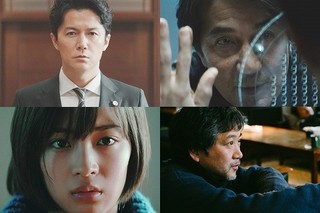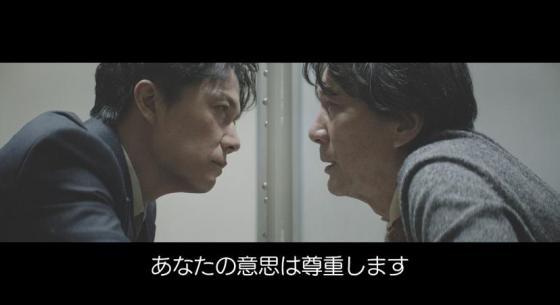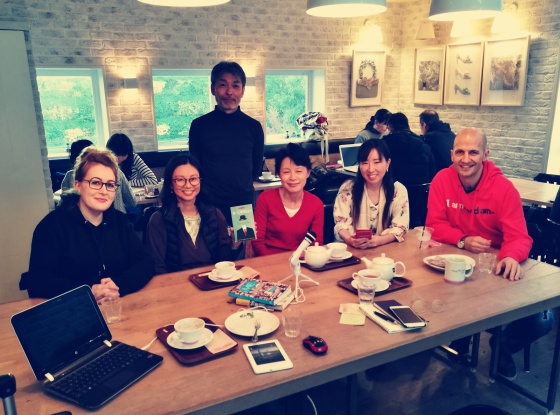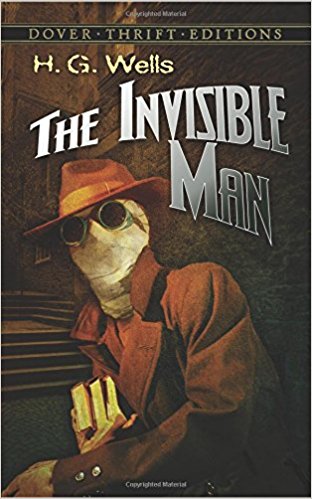
30 years passed for Misumi San since his first double homicide, which cost him a long period of his life in jail. Now destiny wants that the lawyer who is to defend his present case –also a homicide– happens to be the son of the judge who handed down the former sentence. With this film, director Koreeda enters a new genre, thriller, suspense with murder, court-related movies, that is alien to his work, usually free of violence but always full of moral dilemmas. However, some of his identity signs can still be seen in the ambiguous treatment of the main character: a very grave and psychologically unbalanced suspect –very well in his role Kôji Yakusho, whose performance as an unfaithful husband in Lost Paradise (失楽園, Shitsurakuen), from 1997, left in me a bitter unforgettable feeling back in the day–.
Family issues are not forgotten either in this story, with a more than likely incestuous relationship that might have prompted the murder, and a contradictory and obscure attitude in the victim’s wife. Everything is under doubt for the viewer, who along with the lawyer’s character played by Masaharu Fukuyama –I liked him much more in Scoop (2016) and in the also Koreeda’s Like Father, Like Son (そして父になる, Soshite Chichi ni Naru, 2013)–, follows the court’s dynamics until its logical conclusion.
The two men start from a cold and professional relationship, although determined by the family coincidence of the laywer’s father. More and more encounters and visits to jail happen, and Koreeda’s camera registers the approaching of both souls with reflections on the thick glass that divides the men, with the lawyer’s desperation and obsession for entering the accused man’s head in order to understand his motives and to save him from a likely death sentence. At the same time, Misumi’s interest in misleading Shigemori’s investigation will constitute a final twist in the story. And the third assassination is still to be committed in the fashion of sacrifice, which the Japanese judicial system cannot assume.
If in After the Storm (海よりまだ深く、Umi yori mada fukaku, 2016) Koreeda played with broken and abandoned umbrellas at the end of the film as a metaphor of the irreversible wreck of the character’s life, this time we see Misumi leaving the court towards the gallows letting imaginary birds freely fly from his hands, under the constant gaze of Suzu Hirose (Sakie), the young and talented actress omnipresent in Japanese cinema nowadays.



